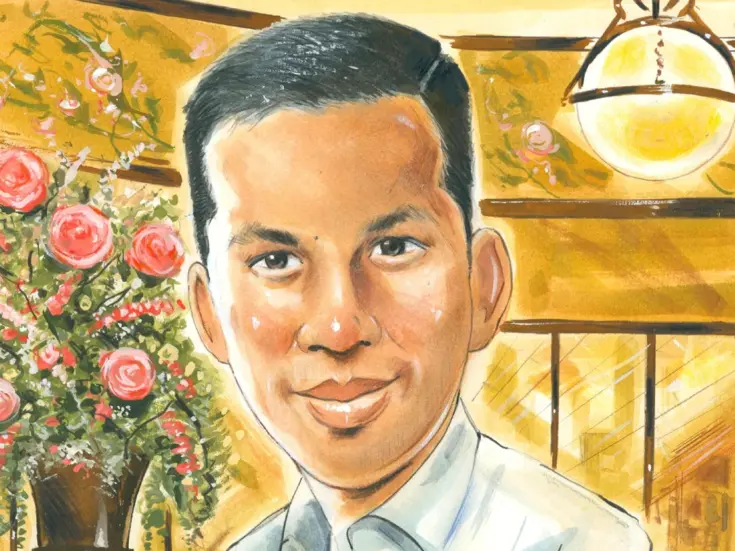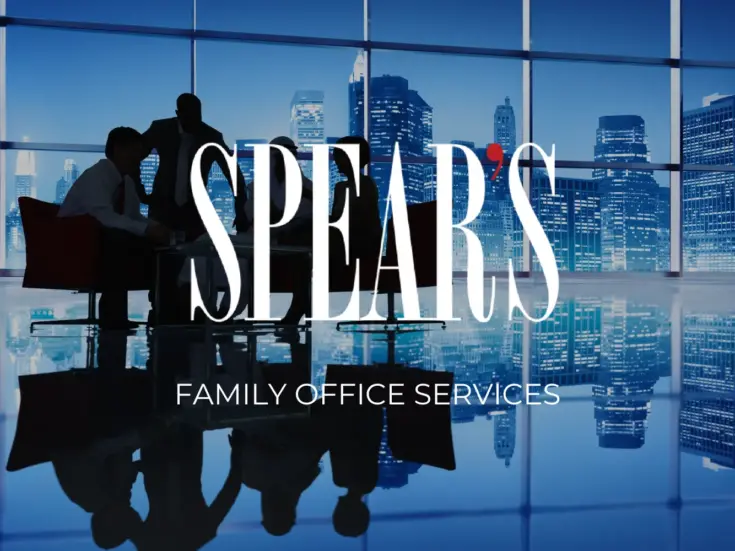
Virtual family offices are increasingly emerging as an alternative to traditional family offices.
Such structures, operated remotely either by a small, independent team, or by in-house advisers at a larger organisation, offer a cheaper, more flexible way for UHNW families to manage their financial affairs.
[See also: Family office executives reveal the 10 biggest trends shaping the industry]
‘Virtual family offices (VFOs) are simply family office services that are outsourced to an external firm, rather than having an in-house team,’ explains Jodie Barwick-Bell, partner at Evelyn Partners, who has extensive experience in setting up and running family offices. ‘It just means you haven’t got someone in-house, who’s employed by you, running your family office.’
Increasingly complex international regulation, cross-jurisdiction interests and a generational wealth transfer are among the factors driving the shift from traditional family offices to the more dynamic services offered by VFOs.
[See also: The best family office service advisers in 2024]
Daniel Channing, director of Jersey-based Crestbridge Family Office Services, explains in a helpful online post on the topic: ‘The VFO has become a very viable option for families at all levels. Getting the very best expertise and support is what families ultimately want – and actually it can be far more accessible, more flexible and more cost effective to be able to tap into that expertise remotely or virtually.’
However, there are also limitations: communication between siloed teams and the family can be more fragmented; a cohesive approach to long-term future planning might be lost; and virtual family offices might not be as secure as traditional family offices.
The rise of family offices
Family offices are becoming increasingly common among HNWs. The number of firms has more than tripled over the last four years, from 1,285 in 2019 to 4,592 in 2023, according to Fundraising from Family Offices: A guide to raising capital by London-based investment data company Preqin. Single-family offices account for 59 per cent of the total.
[See also: Number of family offices triples in four years]
However, establishing the infrastructure and staff for a single family office (SFO) demands a serious financial commitment. The cost of running an SFO averages at around 0.5-1 per cent of assets under management (AuM), meaning they only make financial sense for the most affluent UHNWs.
How virtual family offices operate
Virtual family offices (VFOs) provide a cheaper alternative to the traditional family office structure; offering similar services but removing the costs associated with maintaining a full-time staff, physical office space, and associated administrative costs.
[See also: Preparing the next generation is a ‘primary concern’ for family offices]
In essence, a VFO is a wide group of consultants servicing the assets and supporting the specialist need of a HNW or UHNW family. Unlike a traditional family office, where a range of specialists might be found in-house, VFOs outsource responsibilities to various experts across areas including investment advice, tax, trusts and property.
At the centre of this web is either a core team (perhaps including a family member), or an expert working in-house at a larger organisation.
Firms like Evelyn Partners provide a comprehensive suite of services in-house, including accountancy and wealth management, but, they also collaborate with external experts when needed, such as lawyers for will drafting or specialists for complex investments. This ensures clients receive tailored advice without needing to navigate multiple advisers independently.
[See also: Private credit most popular asset class for family offices]
‘We can do a lot in house but there will always be some subcontracting, be it a lawyer if they need their wills done. We would probably facilitate it, set up a meeting, make some recommendations as to who we think [is best],’ explains Barwick-Bell.
‘An example would be someone buying a private jet. I know a bit about buying private jets, but I also know there's real VAT issues, and I'm going to go behind the scenes and really check. But the client wouldn't need to be involved in all these conversations because I would go away and get all the answers and come back and say "this is how we think you should do".’
The role of technology
As the name suggests, technology has been central to the rise and proliferation of virtual family offices.
Firstly, it allows for a fragmented, sometimes globally disparate team to interact with each other.
Secondly, clients can be given access to sophisticated online portals where they can view their investment portfolios, bank accounts, and other important documents. This digital accessibility allows them to stay informed and make decisions on the go, reflecting the fast-paced, mobile lifestyle of many HNWs and UHNWs.
[See also: Family offices poised for buying spree]
Barwick-Bell adds: ‘Say it’s an entrepreneur, then they like to have access to data on their phone. They're in a meeting and they say “When did I buy that property?” When's the rent tenancy agreement up?” You try to help them set it up in a way that they can access the data that they want whenever they need it.’
Cost-efficient alternative
Barwick-Bell says VFOs are particularly suited for individuals who have significant wealth but do not have the complexity or volume of assets that require a dedicated family office team.
This might include entrepreneurs who have sold their company and are seeking to enjoy their wealth without the hassle of managing it daily.
‘Suddenly they’ve sold their business, they've got all this capital, and they just need somebody to take the hassle away from them so they can enjoy the fruits of their wealth,’ Barwick-Bell says.
A VFO, like a ‘bricks and mortar FO’ will take on tasks including managing personal tax liabilities, overseeing investment managers, and ensuring compliance with regulations. It also often extends to services like payroll for household staff.
Typically, families with assets starting from around $30 million might find VFO services beneficial, especially if they have diverse investments and ongoing financial activities. This setup allows them to enjoy the advantages of a family office without the overhead and commitments of maintaining an in-house team.
Dynamic flexibility
Virtual family offices also provide greater flexibility for multigenerational families with complex needs, for example financial interests that span several geographic locations, as well as a broad range of asset classes. It is difficult for a traditional family office to achieve this level of scale in size, expertise and jurisdictional reach, which is driving a shift towards outsourcing in the field.
The uptake of the VFO model is also being fuelled by the increasingly challenging international regulatory landscape and requirements around reporting.
[See also: Family offices place more value in outsourcing]
Channing explains: 'If a family, for instance, wanted to move assets to a new jurisdiction, it can be much faster, easier and potentially cheaper to consult with a remote team on a temporary basis than to set up a physical office and hire salaried employees.'
He continues: 'Family offices are having to become more sophisticated quite quickly. A virtual structure can allow them to cope with that rapid change much better than a traditional approach, allowing them to get access to the very best financial advice, remain agile, and enabling them to meet the changing needs of the market.'
Dangers of silos
Barwick-Bell explains that, at least for her clients, face-to-face meetings are still an important part of the virtual family office set-up. However, critics of the structure claim that it. can lead to less personalised, comprehensive communication routes than those offered by traditional FOs.
[See also: How ‘intro-fluencers’ are looking to profit from family offices]
Channing highlights the potential risk of expertise 'silos', where advisers do not interact and therefore miss the opportunities or optimum efficiency offered by the cohesive approach of a traditional family office. Questions of security also linger, depending on how robust the set up of the virtual family office.
The cost of comprehensive services compared to simpler, local accountancy and tax compliance services is also higher, yet, for those who understand the value of an integrated approach to wealth management, the benefits far outweigh the costs.








